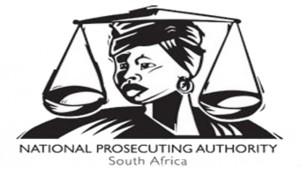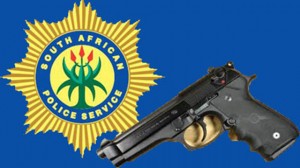GALA DINNER IN CELEBRATION OF THE 40TH ANNIVERSARY OF THE FOUNDING OF INKATHA “40 YEARS: A STORY OF RESILIENCE”
ADDRESS BY PRINCE MANGOSUTHU BUTHELEZI MP
PRESIDENT OF THE INKATHA FREEDOM PARTY
Inkosi Albert Luthuli International Convention Centre, Durban
31 May 2015
His Excellency former President Kgalema Motlanthe and Mrs Motlanthe; The Speaker of the National Assembly, the Hon. Ms Baleka Mbete; Chairperson of the National Council of Provinces, the Hon. Ms Thandi Modise; The Anglican Bishop of Natal, the Right Reverend Rubin Phillip, and all religious leaders; Acting Judge President of the KwaZulu Natal Division of the High Court, the Hon. Justice Gyanda and Mrs Gyanda; Members of the Royal Family and Amakhosi; His Majesty King Fiti Amenya and His Majesty Grand Chief Nyembo, together with the delegation of the African Kings Forum; The first Premier of KwaZulu Natal, former Chairperson of the IFP and former South African Ambassador to Egypt, His Excellency Dr Frank Mdlalose; Your Excellencies; Members of the Diplomatic Corps representing the
Federal Republic of Germany, the Republic of India, the United States of America, the United Kingdom, the Federal Republic of Nigeria and the Republic of Zambia; Leaders and representatives of political parties, in particular the President of the ACDP, the Hon. Rev. Meshoe; the President of the PAC, the Hon. Mr Mbinda; the President of the UDM, the Hon. General Holomisa; and the Leader of the Minority Front, Ms Thakur-Rajbansi; Leaders in business and industry; Honourable Members of Parliament and the Provincial Legislatures; Honourable Mayors and Councillors; Members of the media; Past and present leaders of the IFP; Friends of the Inkatha Freedom Party; And all distinguished guests. The journey of Inkatha has been a journey of my own soul. For forty years, I have poured my time, energy and prayers into the work of this party, for I believed at every moment that Inkatha has a valuable voice and a needed contribution to make. South Africa indeed experienced a gap in our body politic in the early seventies, and Inkatha was designed – if not destined – to fill that gap. Whether by design or destiny, Inkatha was the right solution at the right time. The apartheid regime had banned all our movements such as the ANC and the PAC after the Sharpeville massacre. Any political organisation that tried to lift its head was banned.
I am honoured to see so many friends of the IFP joining us for this celebration, as we mark a forty year journey in the service of our nation. I am honoured, too, to see leaders of other political organisations sharing this celebration, for these esteemed men and women have witnessed the journey of Inkatha and have played their own role in our shared pursuit of freedom, unity and democracy. We have shared a struggle, and that makes us comrades.
I wish in particular to thank our former President, His Excellency Mr Motlanthe, for speaking so eloquently about the past and so passionately about the future. The past is indeed a foundation and a springboard. It does not bind us, but it gives us something solid to stand on as we reach for tomorrow’s treasures.
Although we regret the unforeseen absence of His Excellency Mr FW de Klerk, who intended to share tonight’s celebration with us, I appreciate his message of support, knowing the long history that we share. I served under Deputy President de Klerk in the Cabinet of the Government of National Unity. So I have witnessed first-hand his dedication to the wellbeing of South Africa, and all South Africans. That first Government of our democratic South Africa was a carefully designed creature, and in many respects it gave us what we hoped it would.
It was created in terms of the Interim Constitution which we hammered out at Kempton Park, at the negotiating table. We agreed there that any party that secured more than 10% of the vote in April 1994 would receive a seat in Cabinet. Despite campaigning for only eight days, the IFP secured more than two million votes, justifying our belief that we carried the mandate of a substantial portion of South Africans who deserved to have their concerns addressed before an election, or at least immediately afterwards through international mediation.
Interestingly, the Government of National Unity was not the first non-racial, non- discriminatory government in South Africa. Almost a decade before that, the KwaZulu-Natal Joint Executive Authority gave the example of how governance by all, for all could be achieved. That was the product of the KwaZulu Natal Indaba, which grew out of the work of the Buthelezi Commission six years earlier. These were all initiatives of Inkatha.
The fact is, Inkatha didn’t just fill a political hiatus by mobilising support against apartheid. We worked consistently, day and night, to point the way to a better country. We were not just in opposition to darkness. We were a champion of the light.
It is because of this that the IFP today has a legacy that few, if any, can match. Ours is a legacy of walking the narrow path; the path of sacrifice, integrity, principled action and peace. By the time we
reached the negotiating table, the IFP already had almost 19 years of experience in governance and political leadership. We were freedom fighters who understood the power of good administration, and we knew how to wield policy rather than weapons to achieve victory.
Inkatha could have approached the negotiating table much earlier, had we agreed to negotiate bilaterally with the South African Government led by the National Party. Inkatha would have been the representative of disenfranchised South Africans and the post-apartheid narrative would have had the IFP as the liberator of South Africa.
None of that featured in our decision to refuse negotiations until everyone could come to the negotiating table. We were fortunate that we were dealing for the first time with the leader of government Mr FW de Klerk who had an open mind. This issue I had raised face to face with
Mr John Vorster, the Prime Minister. I held more rallies than anyone else. It had all fallen on deaf ears.
We continually demanded the release of Nelson Mandela and other political prisoners, and the unbanning of political parties, as our firm pre-requisite to negotiations commencing. Thus the IFP brought the ANC to the negotiating table, a fact that by now has been acknowledged by history.
Do I regret it? Not once have I wished I could change our decisions, for we did what our conscience demanded. We did what was right, as a matter of principle. A democratic South Africa could never have been born out of the conversations of a few. It took the contribution of many to change history and deliver democracy.
I often think about the contribution of the IFP at the negotiating table. We were intent on securing the form of state and the specific details of a democratic South Africa, seeking to design the future. In that, however, we were somehow alone, for the largest debate on the agenda was the exchange of power. How it would take place, when it would take place, and who would take the credit.
Repeatedly, the IFP was the first to bring to the table concrete proposals, and even documentation, on such issues as autonomy of local government. The thinking had not yet reached that point, but we had to
steer it there if we hoped to lay a foundation we could actually build on. Thus the IFP tabled proposals for a full bill of rights, social and economic rights, a constitutional court, independent organs of state controlling the executive, the recognition of indigenous and customary law, a federal state with provinces, and many other aspects of a modern constitution.
Speaking about these things now, my heart feels the absence of my long-time advisor, the Hon. Dr Mario Gaspare Oriani-Ambrosini, whom we lost in August last year. He was a brilliant constitutional lawyer who
fought so hard for the future of our country that he could not help, but adopt it, as his home. We are honoured to have his wife Carin and young son Luke with us tonight, as well as his brother, Carlo.
It is inevitable, of course, considering the longevity of the party, that the years have taken from us many leaders and friends. But the IFP has lost more than most, for the brutal years of people’s war cost us thousands of lives. During the eighties and early nineties, every day saw us gathered at gravesides and funerals. Many of the wounds opened during that time are yet to heal. Thus the IFP continues to seek reconciliation, even now, twenty one years into democracy. I know that in the ruling party, His Excellency Mr Motlanthe was one of those who have always been in the forefront of seeking this reconciliation.
I must thank His Excellency Mr Motlanthe for committing himself and President Zuma to pursuing the outstanding agenda of reconciliation between our two parties, when we attended the funeral of Mr Cleopas Nsibande. He told us then that Mr Nsibande used to visit Luthuli House every Monday to press for reconciliation.
Tonight, we honour the memory of leaders who left their mark on the IFP and who are no longer with us. These great men and women gave their contribution to shaping Inkatha, and to shaping the influence of Inkatha in South Africa.
At times, I think, we honour people too late when we thank them only after their passing. Tonight, therefore, I want to thank the great men and women who are giving their contribution to the IFP as we speak. I am proud of the team I lead, knowing that we have very competent, committed patriots, who are serving South Africa with every ounce of their talent.
Their work is not easy, for we operate in a changed political environment in which defining a righteous cause is no longer as simple as it was. Apartheid drew clear lines between right and wrong, and we
all knew what we were fighting for. It was a shared cause, a shared battle. Today, however, there are many causes, but knowing where to stand is more complex.
There is, for instance, the fight for economic freedom, which has been
taken up as a popular cause. I doubt that there is any good faith
leader in South Africa who does not champion the cause of economic
freedom. And surely every citizen seeks an end to poverty. But does
that make it right to stand on the side of nationalisation and forcible
land appropriation? The path towards nationalisation is one we walked
for many decades in the ANC, and which we were grateful that the ANC
finally abandoned.
These are issues for the thinking South African to confront and contemplate. I have always urged people to think, because every cause is met with a specific political ideology, and while the cause is
right, the ideology might not be. Inkatha understood this to be the case when we opposed the call for international sanctions and economic disinvestment from South Africa. Isolating apartheid South Africa seemed credible. But in reality it punished the poorest the most.
I travelled extensively at the time, meeting Heads of State; including Prime Minister Thatcher; President Jimmy Carter; President Reagan, President Bush; Chancellor Kohl in Germany and Prime Minister Den Uyl in Holland, persuading them against sanctions and disinvestment against South Africa. It was a not a popular position, and we were vilified for doing it. But I found agreement from several world leaders against sanctions; a stance that is now common cause, for our government rejects sanctions against Zimbabwe for the very reasons I rejected them against South Africa.
I am grateful to have been received not only by leaders in the western world, but by many African Heads of State, who accepted my liberation credentials and welcomed me. They knew that I had worked closely with Mr Oliver Tambo before the ANC was banned, and that afterwards I continued to meet with him in London, Mangoche, Nairobi, Lagos and Stockholm.
Indeed, President Joachim Chissano once told me that when they enquired who I was, on hearing my condemnation of apartheid, Mr Tambo told them, “That is our man.” When President Olusegun Obasanjo came to South Africa as one of the Eminent Persons Group of the Commonwealth, he was
able to see Mr Mandela in prison. He never stops telling the story that when he asked who I was, Madiba said; “Buthelezi is a freedom fighter in his own right.”
I travelled to Lusaka to thank President Kenneth Kaunda for giving sanctuary to all our political exiles. I visited President Julius Nyerere in Dar es Salaam to do the same. I was a guest of President
Hastings Banda at the celebration of Malawi’s independence and met with Mr Tambo thereafter at Mangoche, and was invited to Liberia by President William Tolbert. I was privileged to attend the
Africa-American Dialogue Series in Addis Ababa in Ethiopia, where I met His Imperial Majesty Emperor Haile Selassie and members of his Government.
I was humbled to receive plane tickets from President Olusegun Obasanjo to visit Lagos, Nigeria, in 1976, where I spoke at the Institute for International Affairs in Lagos on the very day Pretoria granted so-called “independence” to Transkei. When the OAU bestowed a posthumous award on Inkosi Albert Luthuli, through King Moshoeshoe II, I travelled with Ma Luthuli at her request to Lesotho where I delivered
the acceptance speech on behalf of the entire liberation movement. I was received there by Prime Minister Leabua Jonathan. I visited Lesotho where the Prime Minister showed me the destruction by the South African Defence Force, when they raided Lesotho to kill ANC members in Maseru.
Each of these meetings was significant for our liberation struggle. But one in particular changed the course of history. In 1974, during a visit to Lusaka, President Kaunda advised me on how to create what he called “a cohesive force”. He encouraged me to establish a membership-based organization, to reignite political mobilization.
Upon my return to South Africa, I sought the views of Bishop Alphaeus
Zulu, who immediately agreed. He suggested the name Inkatha,
referencing Inkatha ka Zulu, the cultural organisation founded by my
uncle, King Solomon ka Dinuzulu, in the 1920s. Bishop Zulu wisely
advised me to emphasise the cultural aspect, so that we might avoid
being banned outright.
Nevertheless, Inkatha was never just a Zulu organization. Despite the Improper Interference Act, we received members from various African groups, for we represented all disenfranchised South Africans. In
response, the Minister of Police and Justice, Minister Jimmy Kruger, summoned me to Pretoria just two years after Inkatha’s formation, and tried to bully me into limiting Inkatha to Zulu members only. I told
him that as long as the National Party received whites of all ethnic groups, I had the same right to receive Africans of all ethnic groups.
I was not moved, and when the Bergstrasse Institute of Germany conducted a countrywide survey into Inkatha membership, it emerged that we were far from Zulu only. Our national character was emphasised again in the South African Black Alliance, which I chaired, which included Africans of many ethnic groups, Indians and Coloureds. It must be remembered that at the time there was the Improper
Interference Act, in place, forbidding politics beyond racial boundaries. When people over the years threw the jibe at Inkatha as a Zulu ethnic organisation or Zulu based, they ignore that the laws even
forbade what we did by including others, and even founding the South African Black Alliance.
Having canvassed Bishop Zulu’s views on a membership-based organization, I sought Mr Oliver Tambo’s views as well, for we were still working closely together. After all it was Mr Tambo, together
with Inkosi Luthuli, who had urged me to take up leadership of the KwaZulu Government. He too agreed that a membership-based organization was the right move, at the right time. When I looked for money to
publish ‘The Nation’, it was through Mr Tambo that I got money from SIDA in Sweden.
So it was that on 21 March 1975 a group of patriotic South Africans gathered at KwaNzimela and founded Inkatha yeNkululeko yeSizwe, the national cultural liberation organisation. Later, many former prisoners
who had shared imprisonment with Mr Mandela, on being released came to me to join Inkatha. Some of them can be remembered such as Joshua Zulu, Stalwart Simelane and Wordsworth Luthuli, who all joined Inkatha. After all, even our mother Mrs Nokukhanya Luthuli joined Inkatha. Inkatha was seen as no more than a front of the ANC.
In recognition of the role Dr Kaunda played in the founding of Inkatha, we hoped he could be with us tonight. Unfortunately, that was not possible. But I feel it important to express Dr Kaunda’s support in his own words. We have had many conversations, some of them through written correspondence. In a letter to me in November 1989, President Kaunda sought to encourage me as I faced the onslaught of vilification by some in the ANC.
He wrote, “Oliver Tambo and I have discussed the problems of apartheid naturally on many many occasions, but I do not remember, not even once, him speaking against you either in public or in private.” He then referred to a press release and a speech I had delivered, saying, “there is not a single sentence I would disagree with… These were prophetic words of great importance.”
I was honoured when President Kaunda wrote “(I) invite you, My Dear Brother, Colleague and Fellow Freedom Fighter, to come to Zambia as my official guest… this morning at about 0415 hours, I was remembering world leaders in my prayers. As I knelt before Him our Lord and Creator, I mentioned you by name… May He ever be your guide in all that you think, say and do as you participate in the Struggle for Liberation.”
President Kaunda’s advice was right. Within a few short years, Inkatha boasted more than a million card-carrying members. We became home to the disenfranchised masses, becoming the largest black liberation movement in South Africa. Inkatha was a formidable voice for freedom.
We used that voice fearlessly, and we still do, forty years later. By now, the IFP has been in governance and in opposition. From Cabinet to local municipal councils, the IFP has offered a unique leadership in South Africa. It is a leadership that refuses to compromise on what we know to be just and right. A leadership that knows the end must be reached through judicious means. A leadership of integrity, that has protected the strength of our country, defended the most vulnerable and pursued freedom for all with unrelenting passion, over forty years.
That is what we celebrate tonight. A great legacy indeed.
I thank you for sharing our journey.








